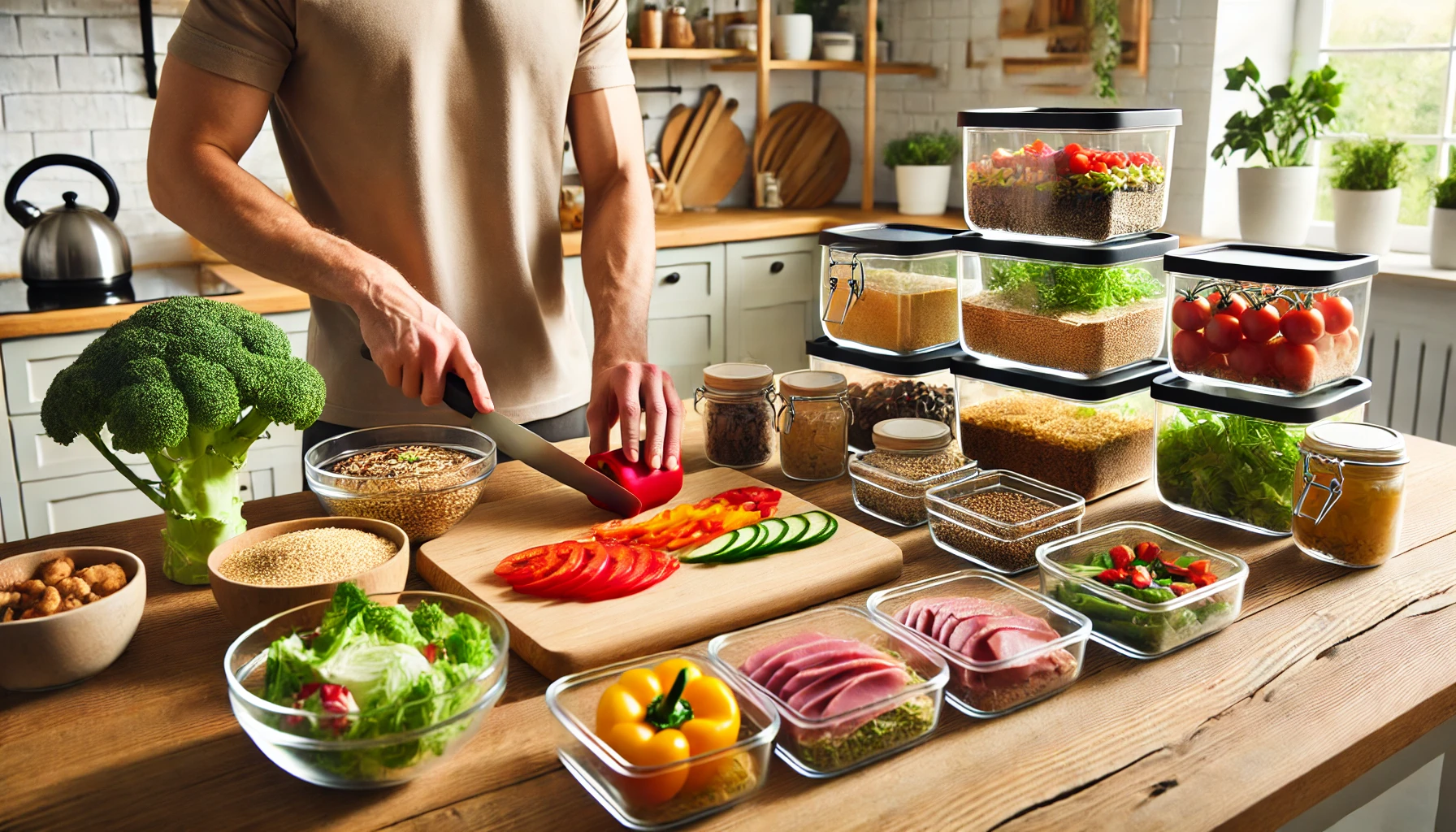Planning healthy meals doesn’t have to be overwhelming. With a little preparation and a few simple strategies, you can create balanced, nutritious meals that save time, reduce stress, and support your overall health. Whether you’re cooking for yourself or your family, these tips will help you plan meals with ease.
Start with a Weekly Menu
Creating a weekly menu provides structure and helps you stay organized. Decide what you want to eat for breakfast, lunch, dinner, and snacks each day. A menu plan minimizes last-minute decisions and ensures you have the ingredients you need.
Tips for a successful menu:
- Choose meals that align with your dietary preferences and health goals.
- Incorporate a variety of proteins, vegetables, whole grains, and healthy fats.
- Plan for one or two easy, go-to meals for busy days.
Make a Shopping List
A shopping list is essential for sticking to your plan and avoiding impulse purchases. Group items by category, such as produce, proteins, and pantry staples, to streamline your trip to the grocery store.
How to create an effective list:
- Check your pantry, fridge, and freezer to see what you already have.
- Write down the exact quantities needed for recipes.
- Add some healthy snacks like nuts, fruits, or yogurt to avoid unhealthy cravings.
Batch Cook and Meal Prep
Preparing meals in advance is a great way to save time and reduce stress during busy weekdays. Cook large portions of staple foods, such as grains, proteins, and roasted vegetables, and store them in separate containers for easy assembly later.
Meal prep ideas:
- Grill chicken breasts, cook quinoa, and roast vegetables for mix-and-match bowls.
- Make a big batch of soup or chili and freeze portions for quick lunches.
- Chop fruits and vegetables for snacks or salads ahead of time.
Stick to Simple Recipes
Healthy eating doesn’t have to mean complicated recipes. Focus on meals with a few wholesome ingredients that come together quickly.
Examples of simple, healthy meals:
- Grilled salmon with steamed broccoli and brown rice.
- Whole-grain pasta with marinara sauce, sautéed spinach, and grilled chicken.
- A hearty salad with mixed greens, avocado, nuts, and a boiled egg.
Use Leftovers Wisely
Leftovers are a time-saver and can easily be repurposed into new meals. For example, roasted chicken from dinner can be used for sandwiches or salads the next day.
Creative ways to use leftovers:
- Turn roasted vegetables into a frittata for breakfast.
- Use cooked quinoa or rice in a stir-fry or grain bowl.
- Make wraps or tacos with leftover meats and fresh veggies.
Incorporate Seasonal Ingredients
Seasonal produce is often fresher, more flavorful, and more affordable. Planning meals around what’s in season can inspire creativity and add variety to your diet.
Examples of seasonal foods:
- Spring: Asparagus, peas, and strawberries.
- Summer: Zucchini, tomatoes, and watermelon.
- Fall: Sweet potatoes, squash, and apples.
- Winter: Kale, Brussels sprouts, and citrus fruits.
Keep a Well-Stocked Pantry
Having a pantry filled with healthy staples ensures you’re always ready to prepare a nutritious meal. Stock up on items like whole grains, canned beans, olive oil, and spices.
Pantry essentials:
- Brown rice, quinoa, and whole-grain pasta.
- Canned tuna, chickpeas, and black beans.
- Spices such as cumin, paprika, and garlic powder.
- Healthy oils like olive oil and avocado oil.
Don’t Forget Snacks
Healthy snacks keep you energized between meals and prevent overeating. Plan and portion out snacks like nuts, fruits, or veggie sticks with hummus.
Snack ideas:
- Greek yogurt with honey and berries.
- Rice cakes with almond butter and banana slices.
- Roasted chickpeas or trail mix.
Final Thoughts
Planning healthy meals doesn’t have to be a daunting task. With a bit of organization, you can simplify the process and enjoy nutritious, stress-free meals every day. Start small by incorporating one or two of these tips into your routine, and build from there.
Remember, the goal isn’t perfection—it’s progress. Focus on creating a sustainable routine that works for you and supports your long-term health.
